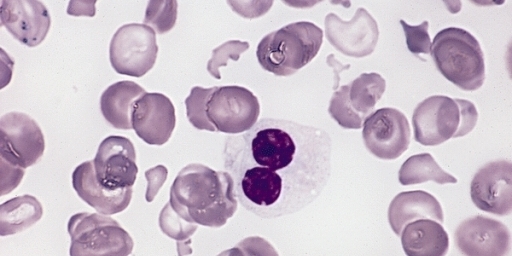Around 1200 cancer doctors and other specialists from around the world meeting in Edinburgh heard about a study into a rare blood disorder involving Tayside patients.
MDS or myelodysplastic syndromes lead to bone marrow failure, and for the majority of patients it is incurable.
The condition is thought to affect about four people in every 100,000 and is most prevalent in older people.
Patients in the Tayside and Fife area have contributed to what is one of the largest sample banks available and that has been exploited by an international research group looking to identify new tools to predict the prognosis of patients with MDS.
Specialists attending the four-day 11th International Symposium on Myelodysplastic Syndromes in Edinburgh were presented with the results of the international study.
MDS can progress rapidly in some patients, but remains stable for years in others.
To be able to predict the nature of MDS in individual patients at the time of diagnosis, experts have been analysing data from over 6000 patients worldwide, including Tayside.
Dundee is the only centre in the UK contributing data to the study involving 17 institutions worldwide.
The results were presented by Professor Peter Greenberg, on behalf of The International Prognostic Group for Prognosis in MDS.
Dr Sudhir Tauro, consultant haematologist at the Dundee Cancer Centre and a co-author of the study, said, “It is a matter of pride for patients from Tayside that they are contributing to this international effort to identify new prognostic markers in MDS.
“I am grateful to them for granting us permission to record their medical information and help us create an impressive dataset that is now receiving international recognition.”
Image used from Wikimedia Commons.
